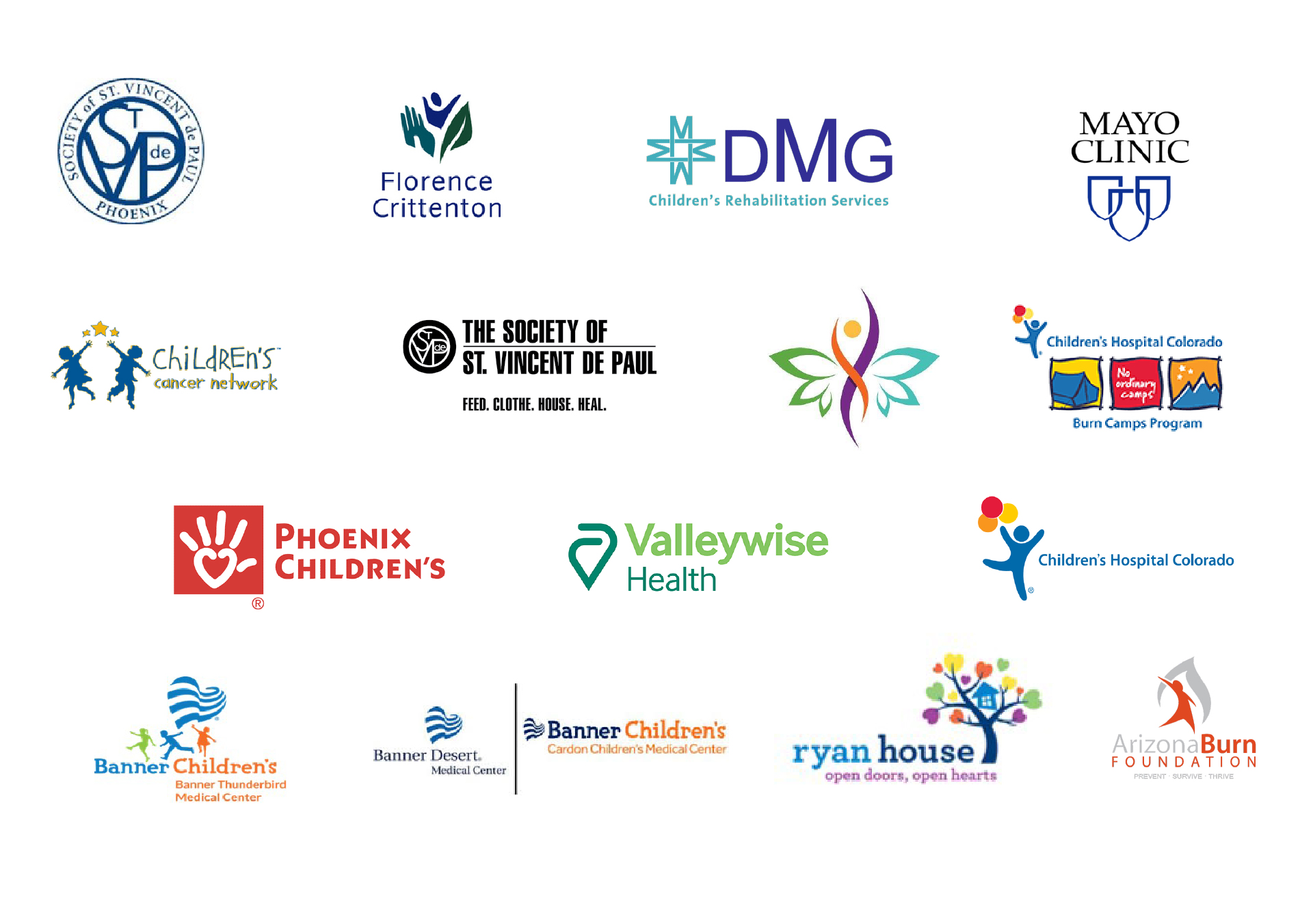Bring Partners That Heal to Your Hospital
Partners That Heal is proprietary programming based on a decade of data and outcomes in hospital and trauma situations and is unduplicated in the United States.
Our techniques ease anxiety and build trust, making it easier to for medical providers and first responders to better connect with and serve their patients. These improvisational interventions break the ice, decrease stress and help facilitate optimal health care delivery.
-
250+ accredited intervention improvisation techniques
-
60,000 served
-
At 30 different Regional and National Hospitals
-
Working with 1500 Child Life Specialists and Healthcare workers
How Partners That Heal can Help
Our Mission
Partners That Heal uses improvisation-based intervention techniques to facilitate communication and reduce fear and discomfort in hospitals, shelters and trauma situations.
Our Vision
Partners That Heal envisions a world where its intervention techniques are offered routinely as an adjunct to the conventional treatment protocol for disease, trauma and emotional distress.
With over 10 years experience, the Partners That Heal program, a troupe of highly trained and experienced professional theatre artists, works directly with healthcare workers assisting and improving patient-provider interactions for all healthcare settings. All members of Partners That Heal go through extensive and ongoing training required by all of our partner healthcare allies and are in full compliance when delivering any of our service models to our partner organizations. We cater our improvisational programming catalogue and service delivery to meet the specific needs of our partner organizations and use the engrained versatility of the nature of what we do to create the programming that is right for any organization searching to improve their patient/provider experience.
In-Person Service Delivery
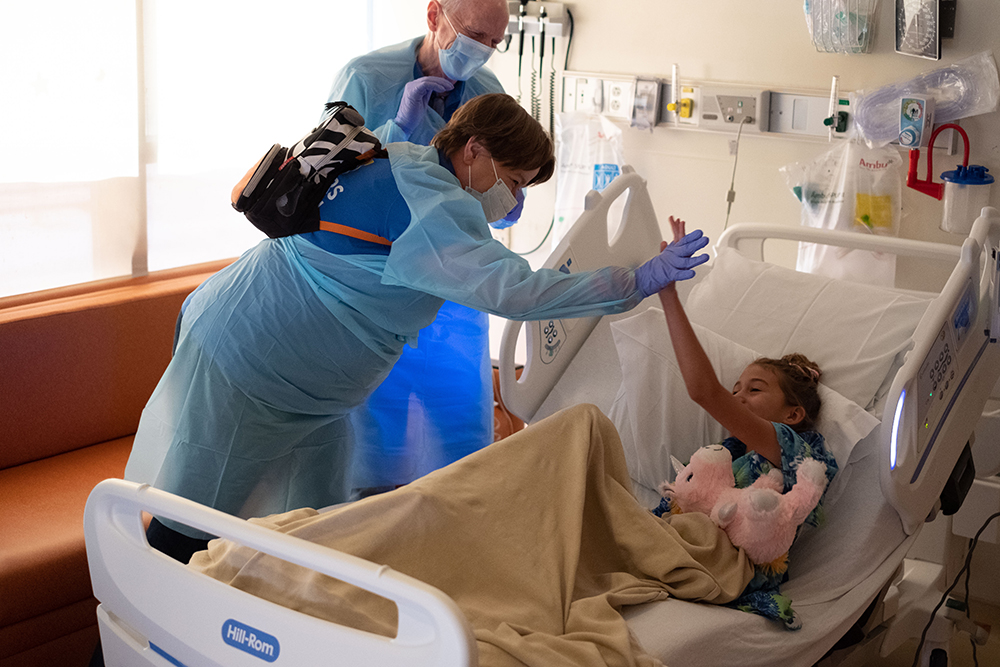
The Partners That Heal are a highly trained six-member team of improvisational actors with a repertoire of well over 250 patient interventions, including interactive games, songs, puppetry, instruments and dance. Services are customized to the needs of the individual patient and are approved for delivery within multiple hospital departments, including individual bedsides and isolation.
Team members have unprecedented flexibility to respond anywhere they are needed, in any hospital unit regardless of access restriction level, at a moment’s notice, depending on patient needs. Hospital staff who have worked with the program report consistent, significantly improved communication with patients directly following a visit, which makes it easier to take vitals, draw blood, administer tests and determine the patient’s level of discomfort. Partners That Heal also engages exhausted medical staff using appropriate intervention techniques, providing much-needed relief, combating burnout and increasing staff resiliency.
Digital Service Delivery

Partners That Heal deliver services digitally year-round to our national and international partners, using Zoom Health technology and computer tablets to engage in live interactions with patients. Services are customized to the needs of the individual patient and are approved for delivery within multiple hospital departments, including individual bedsides and isolation. Partners That Heal also engages exhausted medical staff using appropriate intervention techniques, providing much-needed relief, combating burnout and increasing staff resiliency.
- Enhance Connection
- Strengthen Communication
- Increase Empathy
- Expand Capacity
- Impact Relationships
Testimonials
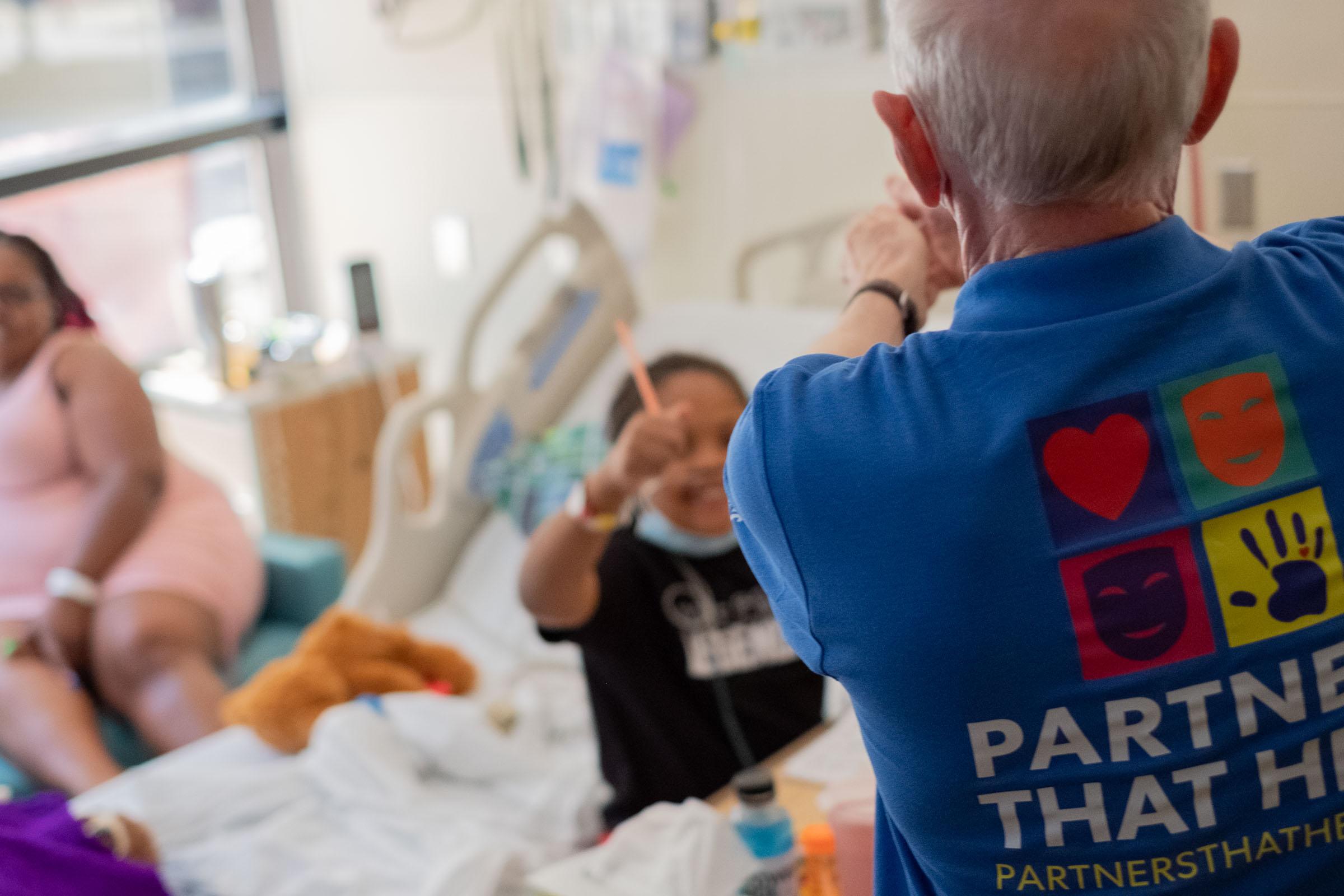
The medical literature contains examples of the use of improvisational intervention, primarily to reduce stress, but it is limited. Partners That Heal’s carefully crafted, evidence-based interventions, developed and documented over a decade of direct service, have the potential to contribute significantly – nationally and globally – to our understanding of how these interventions can help patients and health care workers build relationships, improve communication and compliance, and reduce stress. And this potential extends well beyond the hospital environment, to vulnerable populations anywhere – first responders, schools, nursing facilities and veterans services spring immediately to mind.
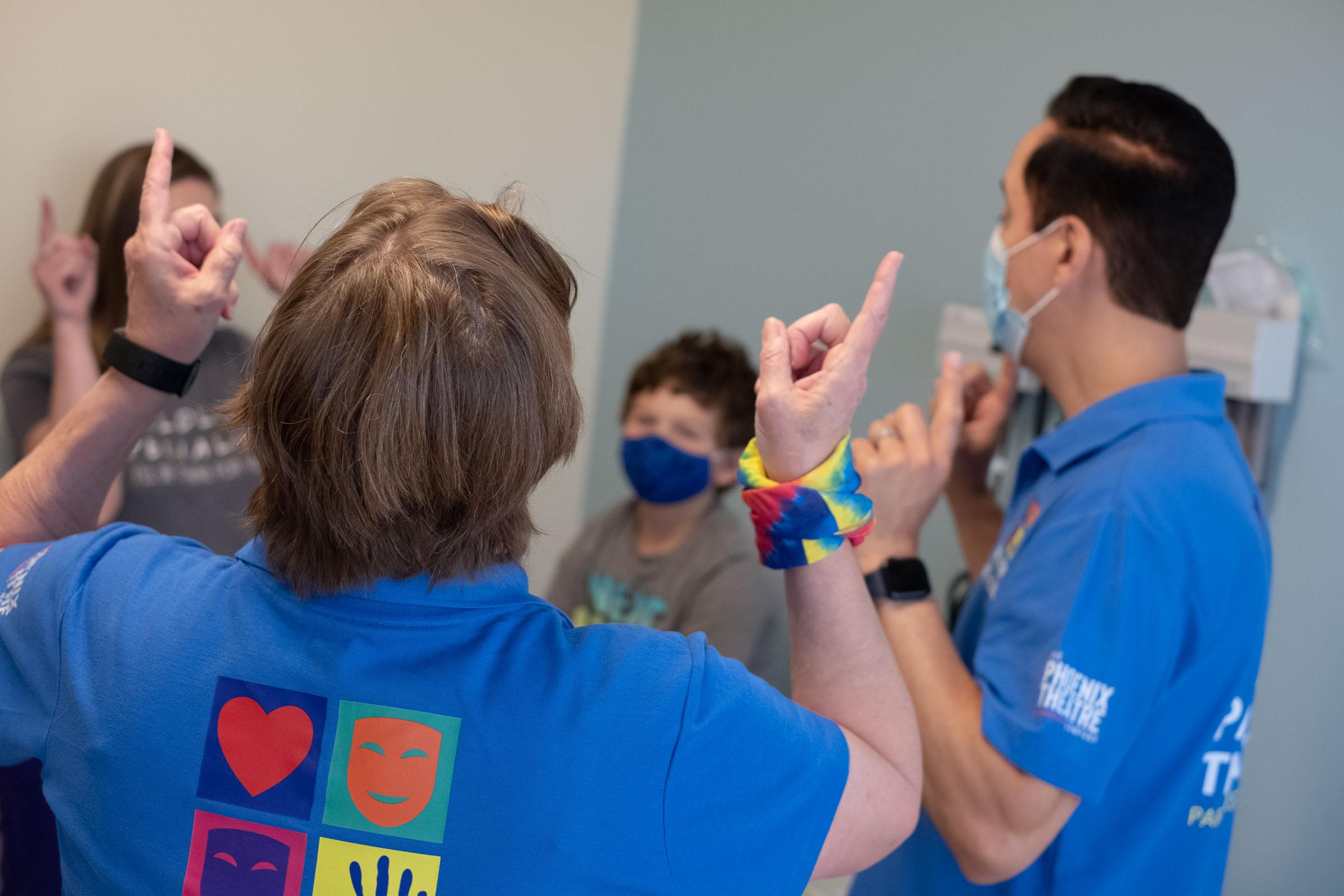
Partners That Heal techniques are able to engage depressed,non-communicative and non-compliant patients. They help build trust relationships between patients and their doctors, nurses and other practitioners. Health care delivery and, from what I have observed, the patient's outcome, is improved.
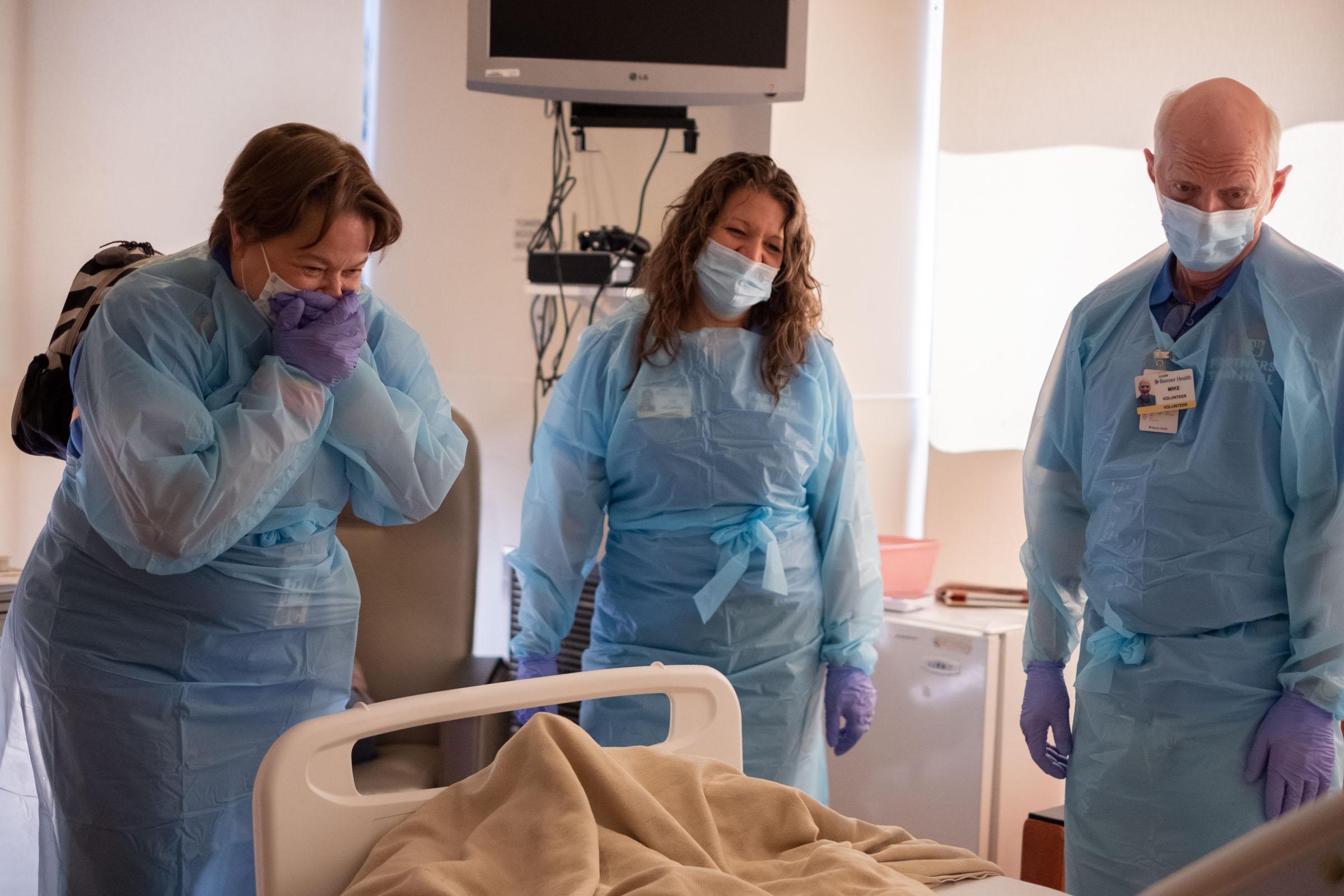
As you can imagine, for children, normalizing their environment through play is a huge part of coping with their illness and hospitalization. Partners That Heal has been an integral part of that play component.
Unfortunately, childhood illness is a sad and cruel reality that many families face. It is a thief really – a thief who steals not only the health of a child but often is an overall vicious robber of all childhood joys. The good news is that on any given day at the hospital, healing is taking place and miracles are happening. Some of the healing certainly is of the physical nature, and some happens on more of an emotional or spirit type of level. Partners That Heal, rightly named, plays a tremendous role in this latter type of healing. What childhood illness has taken away, Partners That Heal is striving to give back.
Past + Present Partnerships
